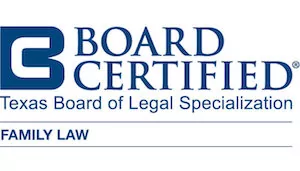Navigating the end of a relationship is never easy, and it becomes all the more difficult when children are involved. When one parent has primary physical custody, the other typically pays child support. Regardless of the relationship between the parents, establishing or modifying a child support order can be difficult as you try to protect your child’s best interests while creating a plan that works for your life.
At the Ramos Law Group, we have years of experience helping clients in all kinds of family situations. Each child support lawyer here works to empower our clients to take control of their lives and help them heal after difficult events. Supporting our clients means supporting their families, remembering that the core of family law is usually children.
Who Pays Child Support?
Child support and child custody law tend to go hand-in-hand. Understanding who may owe child support and in what circumstances depends on the fact-specific nature of a couple’s child custody and parental rights.
Child Custody
There are two types of child custody: physical and legal custody. Physical custody means your child lives with you, making you the custodial parent. Legal custody means you have the right to make important decisions about your child’s life, such as where they live, go to school, and receive medical treatment. You can have joint physical and legal custody, but when parents are not in a relationship, one parent often has primary physical custody while you share legal custody. And parents with a history of abuse or neglect may be denied joint legal custody.
Additionally, one parent but not the other may lose their parental rights or surrender them willingly. A parent without parental rights typically does not pay child support. However, the law makes exceptions for parents of children placed in Child Protective Services (CPS) custody and parents of children conceived through sexual assault.
Conservatorships
In Texas, parents have conservatorships that define their custody arrangements, including:
- Joint Managing Conservatorships (JMCs),
- Sole Managing Conservatorships (SMCs), and
- Possessory Conservatorships.
JMCs include parents having shared physical and legal custody as well as one parent having primary physical custody but the parents sharing joint legal custody. In an SMC, one parent typically has sole legal and primary physical custody. Usually, when one parent has an SMC, the other is a possessory conservator with visitation rights but no authority to make decisions for the child.
How Do You Set Up Child Support?
Every parent is legally obligated to support their children until the child turns 18 or graduates from high school, whichever comes later. This obligation only ends if the child is emancipated or the parent’s rights are terminated.
Determining the Payment Amount
Parents can come to an agreement on the terms of child support, or you may request a judge decide the amount. When determining the payment amount, you must follow, at a minimum, Texas’s child support guidelines. A parent with no other children pays 20% of their income to support one child. That number increases by 5% for each additional child up to the fifth child to total 40% of income.
For child support purposes, income includes:
- Salaries, wages, tips, overtime, bonuses, and commissions;
- Self-employment earnings;
- Interest or royalties on investments;
- Social Security Disability (SSDI) and Veterans Affairs (VA) Disability;
- Unemployment;
- Retirement; and
- Worker’s compensation.
However, income excludes:
- Social Security Income (SSI),
- Temporary Assistance for Needy Families (TANF) benefits, and
- VA pensions.
In Texas, the non-custodial parent must also support the child’s medical and dental care. This is typically done by either providing private health insurance through employment, reimbursing the parent providing health insurance for the child’s portion of the monthly premium, or cash reimbursement if on government-provided insurance.
Post-Divorce or Separation
When you divorce or separate from someone you share children with, you set child custody and child support. Your child support order may be part of your divorce decree or a separate order.
Parents Not in a Relationship
When parents were never married or even in a relationship, you typically have to go to court to establish child support. Depending on the relationship between the parents when the child was born and what the birth certificate says, you may first need to establish paternity. If the potential father contests paternity, you may need to go to court and offer DNA evidence.
If the evidence indicates the potential father is the biological father, the court issues a paternity order that may include details about custody, support, and visitation. If evidence indicates the potential father is not the biological father, the court may issue a paternity order declaring that.
How Do You Modify Child Support?
Your child support order takes into consideration the circumstances at the time it is issued. But what happens if circumstances change? Can you modify the order, and how?
When You Can Modify an Order
If you need to modify a child support order, you generally have to request it in court. When you request a change within three years of the original order, you have to show the court that you, the other parent, or the child’s circumstances have “materially and substantially changed” since the order went into effect. If three years have passed since the order or the last modification, you can also ask to modify the order if the payment differs from the child support guidelines by 20% or $100 or more.
Material and Substantial Changes
Although every case is unique, several situations may indicate circumstances have changed enough to justify a modification:
- A parent remarries,
- A parent is incarcerated,
- A parent is released from incarceration,
- The custodial parent’s expenses increase,
- The noncustodial parent’s income decreases or increases,
- The noncustodial parent has or is established as the parent of another child,
- Someone else takes physical custody of the child, or
- The child’s insurance costs increase or decrease.
This list is not exclusive. Proving material and substantial changes typically focuses on the parents’ financial circumstances.
What Happens If You Don’t Pay Child Support?
Child support is a legally enforceable obligation, one employers are required to withhold from a parent’s paychecks. If a parent nevertheless fails to pay child support, the other parent may take the parent to court. A court can order the parent to make missed payments in arrears. If the parent makes a habit of missing payments, the court may even hold the parent in contempt of court.
Where Can You Go for Help?
If you need to establish or modify a child support order, the attorneys at Ramos Law Group can help. We are committed to providing every client with compassion and empathy we would offer our own families. Our founder, Mary E. Ramos, has instilled a dedication to staying educated on legal developments in the field of family law, allowing us to develop forward-thinking case strategies tailored to our clients’ needs. If you need a League City child support attorney, contact us today.










